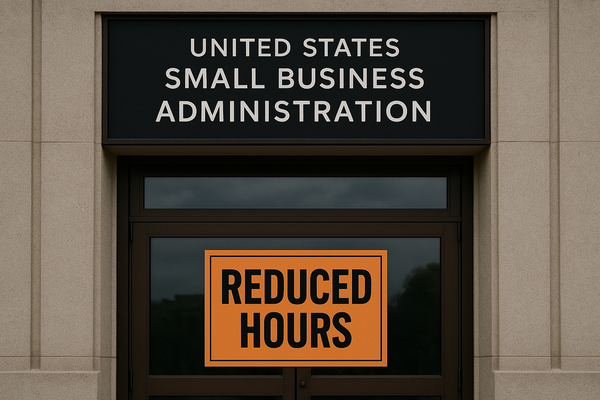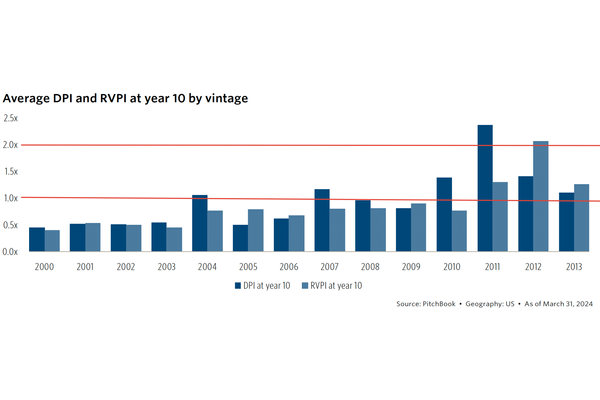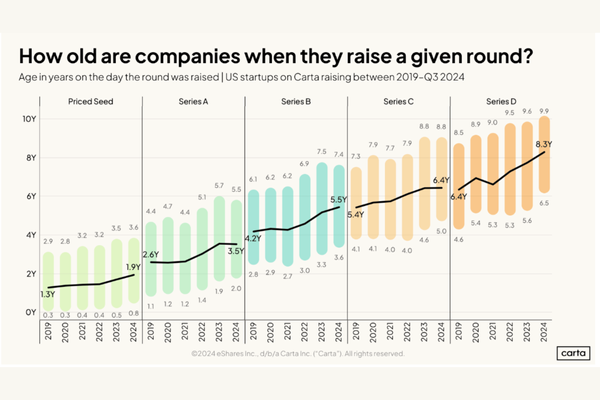Career Development – Don't Over Index For Title, Money or Furniture
One way I’ve measured my career development is in the dramatic decline in the awesomeness of my offices and desks over the years.
At the age of 26, I started my new role as an audit and tax supervisor at the national accounting firm Kenneth Leventhal. Their Boston office was located at 60 State Street, one of the most prestigious addresses in Boston. I had an office that overlooked the Custom House and Boston Harbor. That office had a big wood desk, book case, and comfy chair. I could stand up at the window, hands on my hips, looking out over the harbor and feel like a big deal.
And yet, as nice as that was, it sparked the realization that I didn’t want to be a CPA anymore. I didn’t love my job, and that awesome office, desk and harbor view didn’t change that. Within a year I was gone from Kenneth Leventhal. Two years after that I left the world of public accounting forever.
And so started my downward progression in the quality of my office furniture. I would never have an office again.
Fast forward to age 43. My first day at Thrillist as the company’s first CFO. My $99 IKEA desk was crammed into a 3,500 square foot room with 35 other people. It sat up against our founder Ben Lerer’s desk, forming an L shape with his desk. He could stare at the side of my head if he peeked around his monitor. We would sit that way for over a year, talking back and forth about the business. I loved it.
Throughout my career, I have at times traded off cash compensation, title and other perks for skills, experience and a passion for whatever I was diving into. It’s why I’ve always loved smaller organizations, and startups in particular. And that’s how I was able to stretch myself in every new role I've been in. I've always focused on taking on new responsibilities that were never part of the original role, and building the skills upon which I developed my career.
Here are some thoughts on how I’ve managed my career.
Set Yourself Up To Take Chances
An often overlooked aspect of this topic is in how you live your life to allow yourself up to take chances. If you’re up to your ears in debt, or you’ve spent yourself into a lifestyle and spending level you’re determined to maintain, you’re going to be overly focused on cash compensation. This is going to limit your ability to take chances. You're going to end up optimizing your career decisions around short term cash rather than opportunity and responsibility.
I see it all too often where a candidate is too focused on title or cash. walking away from an incredible opportunity. They end up trading the longer term career building for short term gain. Don’t make that mistake.
The world has changed. Many of us will live to 100 years old. Play the long game. Think about your career not just in terms of amassing wealth. Think in terms of amassing the skills you will need over a long career to continue to stay relevant. This will allow you to continue to do new and interesting things as you get older.
Find Opportunities Where You Can Make a Direct Impact
I’ve always gravitated to smaller companies, where I knew that my efforts could have a direct impact on the success of the company. I've found that there is far less structure and bureaucracy that can get in the way of my desire to constantly expand the portfolio of my responsibilities.
My evolution from Finance Manager to CFO, COO and finally President of Thrillist/Group Nine was largely built upon a constant effort to take on new responsibilities that needed attention and leadership. Every company of every size is resource constrained in some way. That leaves some key initiatives getting less attention than they need. There lies an opportunity if you’re willing to reach for it.
I’ve consistently used my role as CFO to build and lead entire operations teams, including legal, HR and facilities. My focus on analytics allowed me to take on the leading of the audience insights and ad operations teams at HuffPost. At Thrillist/Group Nine, my process and analytical orientation led me to take on the building of our insights group and the leadership of our technology team. In every instance where I saw a gap in leadership or execution, if it was an area of interest to me, I jumped into the fray and seized the opportunity to learn new things and expand my role.
It goes without saying that this leads to a lot of additional responsibilities and work, particularly in the early days when you’re building a team. Hard work and hustle is a key part of building your career.
Follow Successful People and Build Your Network
One of the career defining decisions I made was to join the Huffington Post as their first CFO in 2009. In hindsight, this might seem like an obvious choice. At the time, while HuffPost had seen it’s profile rise after the Obama election, success was far from certain. I had no experience in the world of startups or venture capital. I was 41 years old and I already had a track record as a CFO and COO. It would have been easy to choose the path of going to a more established company for a lot more money and perks.
What drove my decision? The executive team, the Board, and the investors. This group included co-founders Ken Lerer and Arianna Huffington. Fred Harman of Oak Investment Partners was on the board and had just led the company’s Series A. Eric Hippeau and Mike Perlis of SoftBank Capital were also investors and board members. Eric would become CEO of HuffPost shortly after I joined as CFO and help lead the company to its success.
In researching that team, I quickly realized that this was a group of incredibly smart people, with a long track record of success. If HuffPost was successful, obviously that would be great for my career. But even if it wasn’t successful, I was confident that this was a group of people I needed to know.
And this held true. When we finally sold HuffPost to AOL for $315 million in 2011, Ken introduced me to his son Ben, who happened to be looking for a CFO for Thrillist. One month later I was part of the Thrillist team, starting a 7 year run that culminated in my role as President of Group Nine Media. Ken and Ben then brought me on board as an early advisor at Lerer Hippeau Ventures, where I helped them set up the operational infrastructure for the fund, and had the chance to advise a number of interesting founders. Today Lerer Hippeau is one of the leading seed-stage venture firms in New York City.
Chasing Cash Can Lead to Dead Ends
It has always crushed me when I interview a great candidate for a key role, only to lose them to a far less interesting company simply because the cash compensation and/or title was better. I could offer them faster growth, the opportunity for more responsibility, and even equity in a rapidly growing startup. But they would optimize for title and cash compensation. All too often they moved to companies that weren’t growing and were hamstrung by legacy businesses and bloated bureaucracies.
How you manage your career, and the choices you make along the way, says a lot about you. Going to Yahoo in early 2000’s seems prescient. Going to Yahoo in 2015 seems like a questionable decision. It suggests you were optimizing for the wrong things, and weren’t paying attention to the evolution of the industry.
One of the great risks of over indexing for title and money is ending up with a resume of roles in uninspiring, dead end companies. Be careful of this.
Don’t Be the Hound
Last year we got a puppy. It was a shelter mutt, but she was primarily Plott Hound, which is a hunting dog. There are a lot of great things about hounds, but they have one big problem. They can be really hard to train off leash. This is because hounds are notorious for picking up a scent, putting their heads down, and then following it to wherever it leads. Their hearing shuts down, focusing all of their energy on their sense of smell. Consequently this is how hound dogs get lost. They can end up miles from home, in the middle of the woods, before they pick their head up. And then they have no idea where they are, how they got there, or how to get home.
Don’t be a hound dog with respect to your career.
What Are Your Goals?
When you start a new role or join a new company, you should have a very clear sense of what you want to accomplish. Not just for the company, although that’s important. But first and foremost, for yourself. What professional accomplishments do you want to achieve in the next 12 months? 24 months?
I often advise people to think about their role in terms of bullets on a resume. What are you going to be able to call out as accomplishments that supported the company’s goals and contributed to its success?
When you feel you’ve accomplished those goals, you should set new ones. You should always be building that foundation of skills that are essential to building your career. This should keep you pushing for new responsibilities, professional growth, and new challenges.
When your role, and your company, can no longer support your desire to set these kinds of goals, it’s time to start planning on making a move.
Know When It’s Time To Move On
Careers are like sharks. If they stop moving, they die. (Ok, I appreciate that this isn’t really true, but it made my point more dramatic.) If you’re setting yourself new development goals on a regular basis, you may get to a point where you’re struggling to move up within your organization. If you find yourself doing the same thing this year as to what you were doing last year, with the same responsibilities, you need to take a step back and make a clear-eyed assessment of your situation.
In assessing why you think you’re stuck, you need to get feedback on your own performance from others to understand if you are holding yourself back. If your company is big enough to have an HR team with regular performance management, take that process seriously and seek out as much feedback as you can get. Seek out mentors inside and outside of the company who can spend time with you to help you line up your performance and expectations with reality.
You should always be prepared for the time in your career when the next leap in your professional growth will come from making a move to a new opportunity, rather than staying where you are. You shouldn’t be mad or sad if that happens. Company hierarchies, even in the smallest companies, are shaped like a pyramid. The number of people at the lower levels in the company far outnumber the number of people at the top. As a result, you’ll often hit a roadblock simply because there is no room to move up, and you need to move to a company with more opportunity and growth potential.
Don’t Jump Too Quick
Leaving a company at the wrong time can be just as problematic as sticking around for too long. You need to be very thoughtful about your current situation. You don’t want a career built on one and two-year stints at a lot of different companies. And if you pick the right company with a good growth trajectory, you want to try to ride that rocket as far as you can. Particularly if you have equity in the company, there are financial rewards to go along with the experience you’ll gain.
Balance your expectations for your career development with the needs of the company. I know you want that next promotion and a pay raise, but you just got a promotion and pay raise six months ago! Instead, you should focus on continuing to take on new responsibilities, and over-deliver on expectations, so that the next raise and review process is that much more productive. Spend time moving less interesting responsibilities that you’ve mastered to more junior people on your team. This leaves you time to stretch up within the organization, taking on new responsibilities and proving your ability to do more.
Be very deliberate in your decision-making process. This is not a time to let emotions take control. I’ve seen far too many people make a rash decision to jump ship simply because of a perceived slight that could have been easily addressed. Instead, they moved too quickly and ended up derailing all that they had been working toward. In many cases, because the decision was focused on title and money, they moved to a company with far less opportunity for future growth. You’ve just spent the last few years building a foundation of experience where you are. Don’t be dismissive of all of that work and throw it away carelessly.




